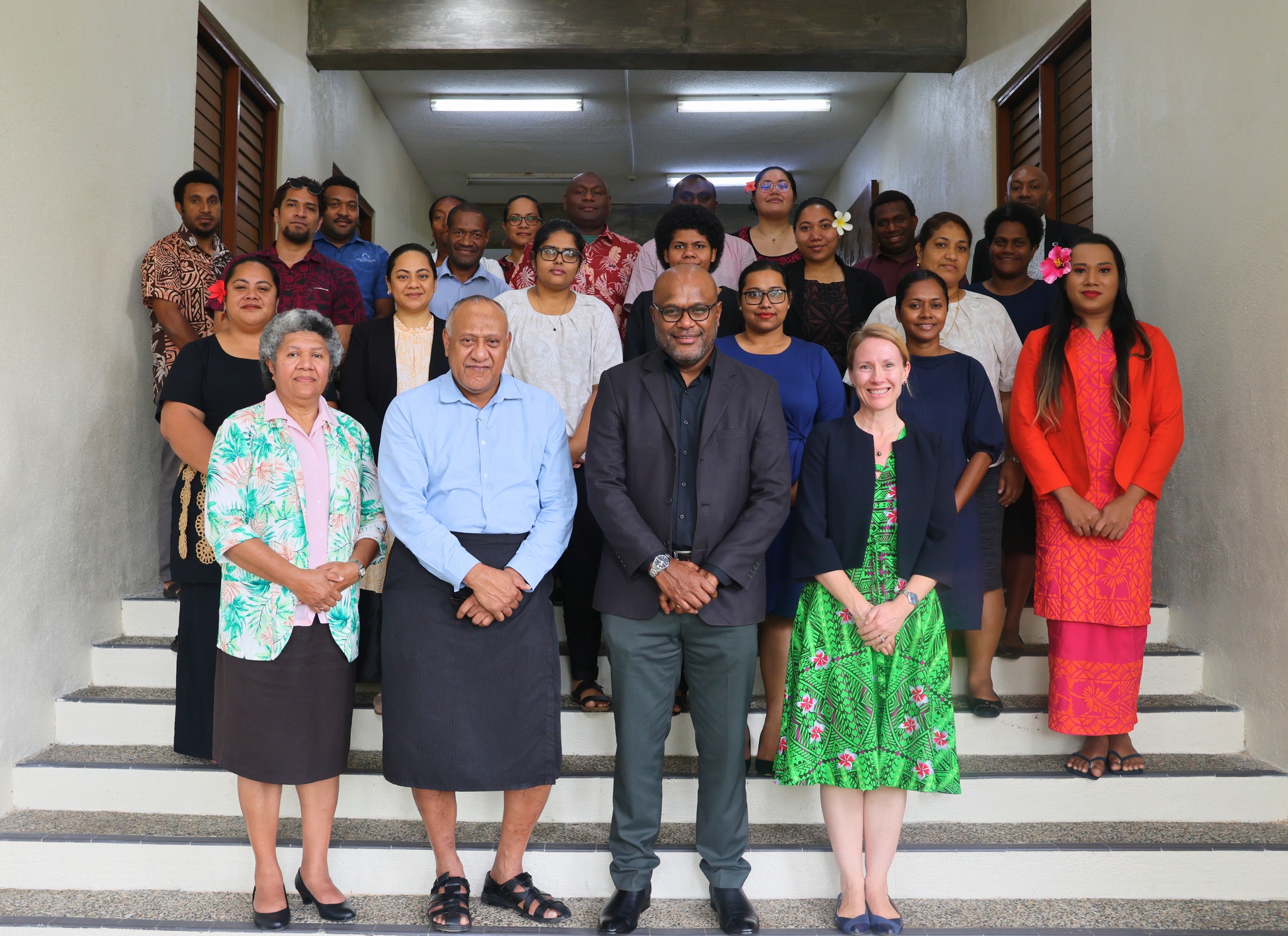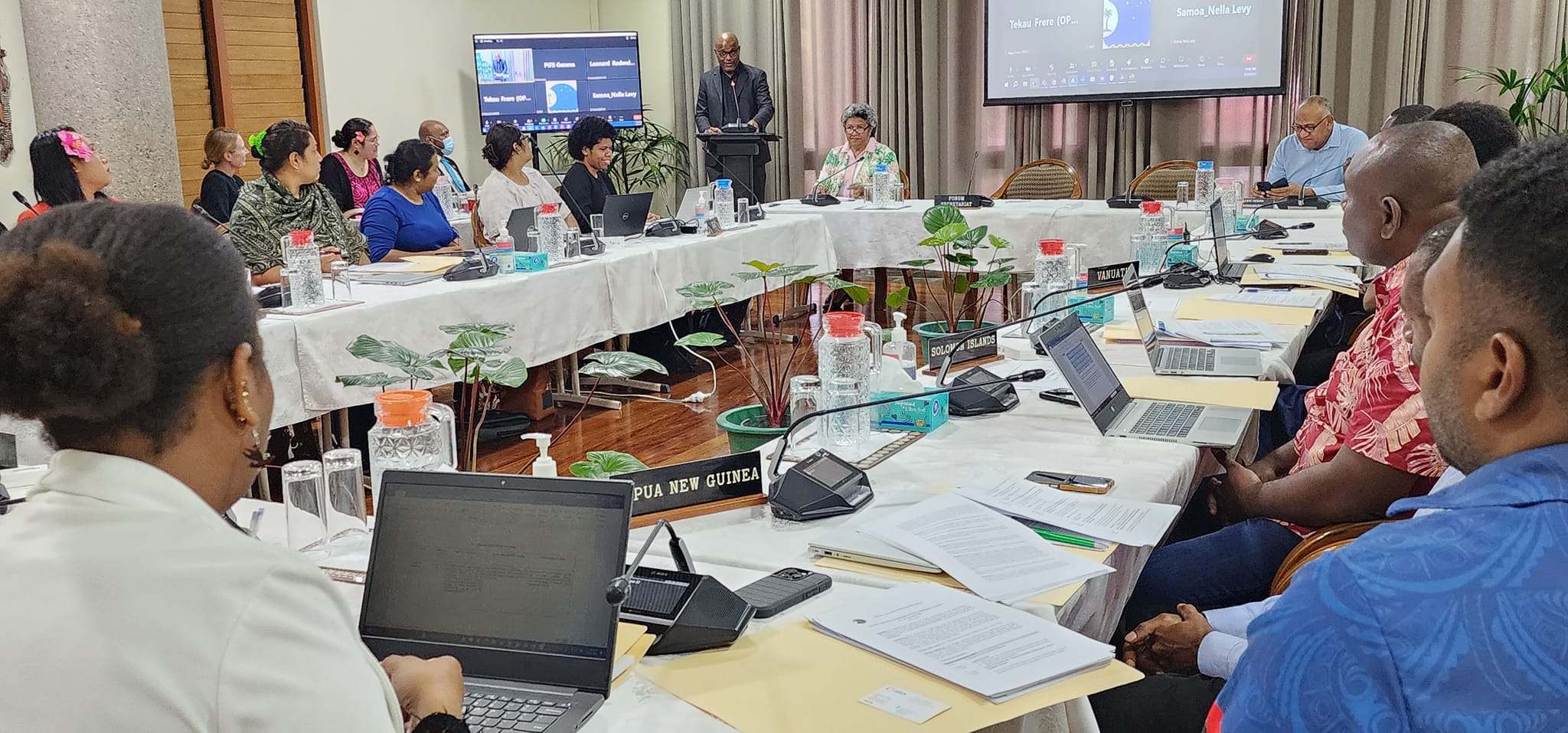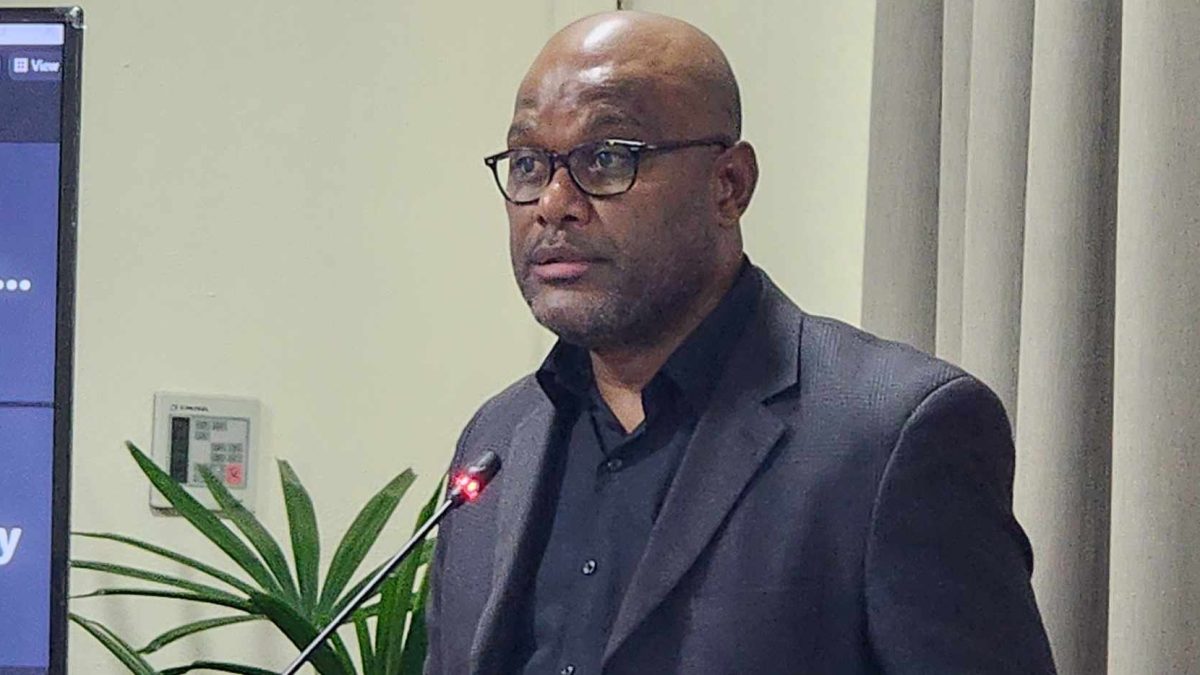Forum Deputy Secretary General, Esala Nayasi says the Pacific region should discourage any subsidies that support fishing of stocks that they have declared overfished, in line with the Forum strong and effective fisheries management system.
Nayasi made the remarks in Suva while opening the Pacific workshop on World Trade Organisation (WTO) Fisheries subsidies.
“Subsidies to the fishing sector has contributed to IUU fishing, to fishing of stocks that are overfished and to excessive fishing in the high seas. This Agreement can be an additional tool in combating IUU fishing, fishing of overfished stocks and fishing in the high seas. IUU remains a significant challenge for our region, as confirmed by the FFA report of 2021 which valued the catch from IUU fishing for 2017 to 2019 as USD$330 million.
“The Fisheries Subsidies(FSA) is very strongly connected to the aspirations and vision which our Pacific Islands Forum Leaders have articulated through the 2050 Strategy for the Blue Pacific Continent under the Oceans pillar. Focusing on harnessing opportunities arising from the blue economy and protecting the health of our ocean and fisheries resources is central to achieving the objectives of the 2050 Strategy,” said Nayasi.

This workshop responds to the call by the Forum Trade Ministers during their special Meeting in Nadi in November last year, where they discussed the post-MC12 priorities for the Pacific.
The Pacific Trade Ministers specifically requested that the Forum Secretariat assist Pacific WTO Members to undertake a comprehensive assessment of the implications of implementing the Fisheries Subsidies Agreement adopted at the WTO Twelfth Ministerial Conference (MC12) in June 2022.
“The objective of the Workshop is therefore to present to the Pacific WTO Members the draft Assessment undertaken to consider the implications of accepting the WTO Agreement on Fisheries Subsidies (FSA). The Workshop will also provide an opportunity to update Pacific Officials on the state of play of the second wave of the WTO Fisheries Subsidies negotiations. Officials will also consider the Pacific WTO Members’ preparations for the second wave of negotiations.
“The Pacific with the ACP Group played an influential role in the conclusion of the FSA and in the mandate to continue negotiations on overcapacity and overfishing. Realising that the Agreement to be adopted at MC12 was not going to be comprehensive due to the lack of political will to conclude disciplines on the overcapacity and overfishing (OCOF) pillar, the Pacific with ACP made sure that negotiations would continue after MC12 as reflected in paragraph 4 of the MC12 Decision,” said Nayasi.

Nayasi emphasised there is a call by the WTO Director General, Ngozi Okonjo-Iweala to have two-thirds of ratifications by MC13 so that the Ministerial outcome on Fisheries Subsidies expected at MC13 could be complemented by the entry into force of the first phase of the FSA.
“In the end, the purpose of the assessment to be presented today is to inform Pacific WTO Members of the key implications of the FSA so as to assist in their decision to ratify the Agreement. Of course, the decision to ratify obviously rests with individual Members.
“I also thank the representatives of the regional fisheries organisations for their ongoing technical support during the negotiations,” said DSG Nayasi.
SOURCE: PACNEWS














